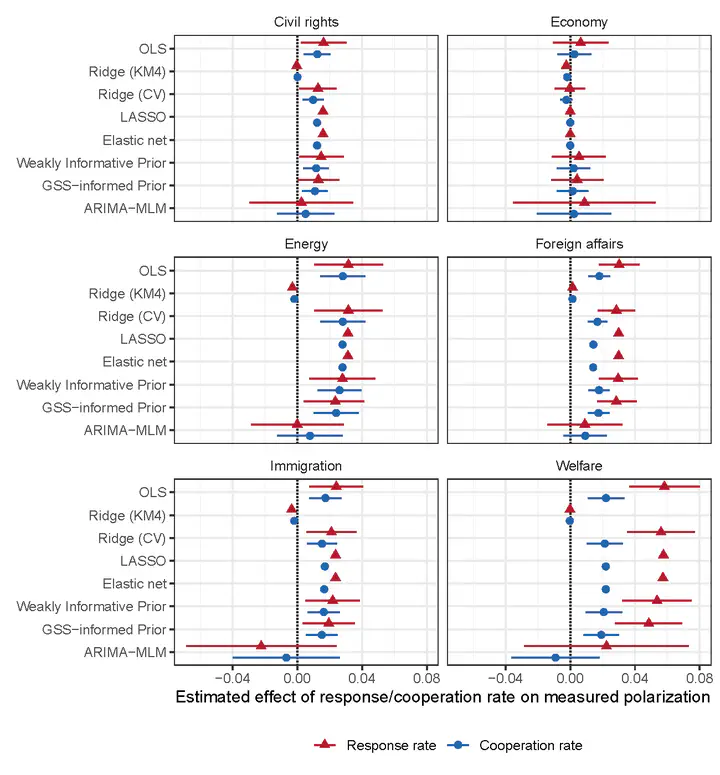Regularized Regression Can Reintroduce Backdoor Confounding: The Case of Mass Polarization (APSR)

Abstract
Regularization can improve statistical estimates made with highly correlated data. However, any regularization procedure embeds assumptions about the data generating process that can have counterintuitive consequences when those assumptions are untenable. We show that rather than simply shrinking estimates, regularization can reopen backdoor causal paths, inflating the estimates of some effects, and in the wrong circumstances, even reversing their direction. Recently, Cavari and Freedman (2022), argued that declining cooperation rates in surveys have inflated measures of mass polarization. We show that this finding is driven by large penalty terms in their regularized regressions, which leads to the estimates being confounded with time. Alternative methods do not show a clear positive or negative effect of declining cooperation on estimated levels of mass polarization.